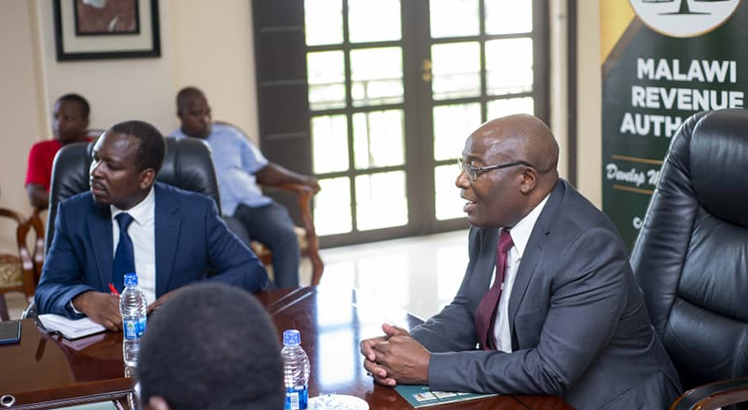Paye bracket review costs MRA K50bn
Malawi Revenue Authority (MRA) says Treasury’s decision to widen the zero-rated pay as you earn (Paye) bracket from K100 000 to K150 000 will cost the public tax collector K50 billion annually.
But MRA expressed optimism that despite this loss, it will meet its K3.26 trillion target for the 2024/25 financial year.
In an interview yesterday on the sidelines of a presentation to the media on revenue performance from April 2023 to February 2024 yesterday, MRA Commissioner General John Biziwick said while Paye has been one of its best performing tax revenue streams, the authority hopes to recoup the loss from improved value-added tax (VAT) collections.
He said: “We may lose about K50 billion out of that, but our expectation is that that increase in the band should result in more disposable income.

“What that will mean is that we should be able to collect more VAT from people. We are improving on the way we collect VAT because that has been one of the least underperforming taxes.”
In the projected K5.98 trillion 2024/25 National Budget presented in Parliament, Minister of Finance and Economic Affairs Simplex Chithyola-Banda said effective April 1 2024, the zero-rated Paye bracket will be increased from K100 000 to K150 000 to cushion employees in formal employment from the effects of the 44 percent kwacha devaluation implemented last November.
Accordingly, the next K350 000 will be taxed at 25 percent while the next K2 050 000 will be taxed at 30 percent and K2 550 000 will be taxed at 35 percent.
The zero-rated tax band review came amid pressure on the government to increase the zero-tax band in the 2024/25 National Budget as consumers seek relief from a cost of living crisis that has eroded their buying power.
The proposals are a deviation from the tax schedule announced in the 2023/24 Budget Statement effective April 1 last year and maintained the zero-rated tax band at K100 000, but revised other tax brackets with incomes between K100 001 and K330 000 taxed at 25 percent.
Biziwick observed that while reduced agriculture output threatens revenue collection as Malawi is an agro-based economy, they are banking on better performing sectors such as financial and insurance and the extension of the 10 percent corporate income tax on profits above K10 billion, which Treasury effected on banks and all businesses that make such profits to ensure equal and fair treatment of super normal profits.
He said: “If you look at our performance for the past three years, we have grown tax collections by about 36 percent. So, if we continue growing at that rate, we should be able to hit at least K2.99 trillion.
In an interview yesterday, Scotland-based Malawian economist Velli Nyirongo observed that maintaining a delicate balance between tax relief and revenue generation is crucial for the government.
Meanwhile, MRA says it has collected K2.002 trillion in the 11 months to February 2024, out of its target of K2.18 trillion for the 2023/24 financial year which runs up to March, translating to a surplus of K20.95 billion, or 101.1 percent performance.
Biziwick said the positive performance was due to, among others, improved debt collection which contributed K15.25 billion, introduction of 40 percent tax rate for commercial banks on profits above K10 billion which contributed K5.53 billion, court cases contributed K5.37 billion while outreach efforts, education initiatives and customer support services positively affected taxpayer compliance behaviour and revenue collection.
However, delayed implementation of some tax policy changes affected the target negatively.





